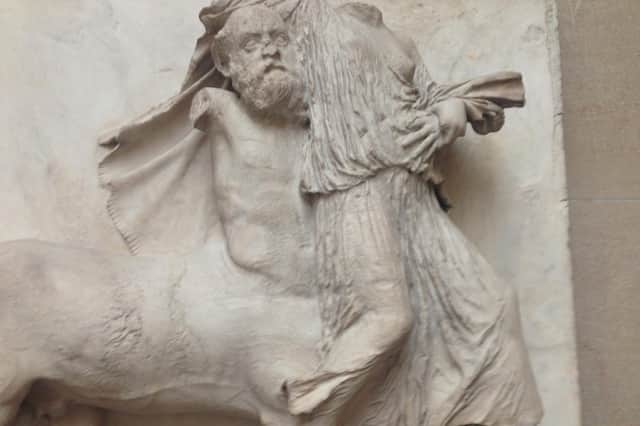Passions: Returning so-called 'Elgin Marbles' to Athens would help restore the world's greatest monument to democracy – Ian Johnston


About 2,500 years ago, something utterly astonishing happened among a relatively small group of humans. They decided it was wrong for a powerful individual or group to control the lives of others. They agreed that all citizens had equal political rights, like freedom of speech, and should be allowed to make the most serious of political decisions. Democracy was born.
Admittedly, the ancient Athenians’ definition of a “citizen” was narrow: slaves and women were excluded. But given the UK only gave women the vote about a century ago and abolished slavery about a century before that, they could perhaps be forgiven for these undoubted moral failings. It took aeons of philosophical progress to point them out.
Advertisement
Hide AdAdvertisement
Hide AdIn this new democracy, people had a duty to take part in politics. Those who did not were considered “useless”, according to historian Thucydides. So, essentially, there was a strong social pressure to have ideas and take part in arguments. This period saw the birth of modern theatre and, while the ‘great and the good’ of Athens could bank on front-row seats, they might discover they were being mercilessly parodied on stage. And they had to sit and take it.
Such freedom is, I think, why there was a flowering of knowledge, philosophy and art in Athens at this time. And this first democracy left a lasting monument to their earth-shattering political revolution: the Parthenon. The techniques used to construct the temple are extraordinarily sophisticated and the sculptures that adorned it are nothing like the stiff, formal statues of previous times. They are stone made flesh. With no monarch to order the sculptures to be carved in the traditional way, progress was made.
The ravages of time have not been kind to the Parthenon, which has been blown up, assaulted by air pollution and had various bits removed. The chief ‘collector’ of its finest art was Lord Elgin, the British ambassador to the Ottoman Empire in the early 1800s, who took about half the sculptures, which now rest in London's British Museum.
The Parthenon is an icon of democracy. That its sculptures should be split up – some figures have their heads in Athens, their bodies in London – is a travesty. Allowing the so-called ‘Elgin Marbles’ to rejoin the rest in the Acropolis Museum, within sight of the Parthenon, would be an act of restoration of what is, I passionately believe, the greatest monument humanity has ever built.
Comments
Want to join the conversation? Please or to comment on this article.